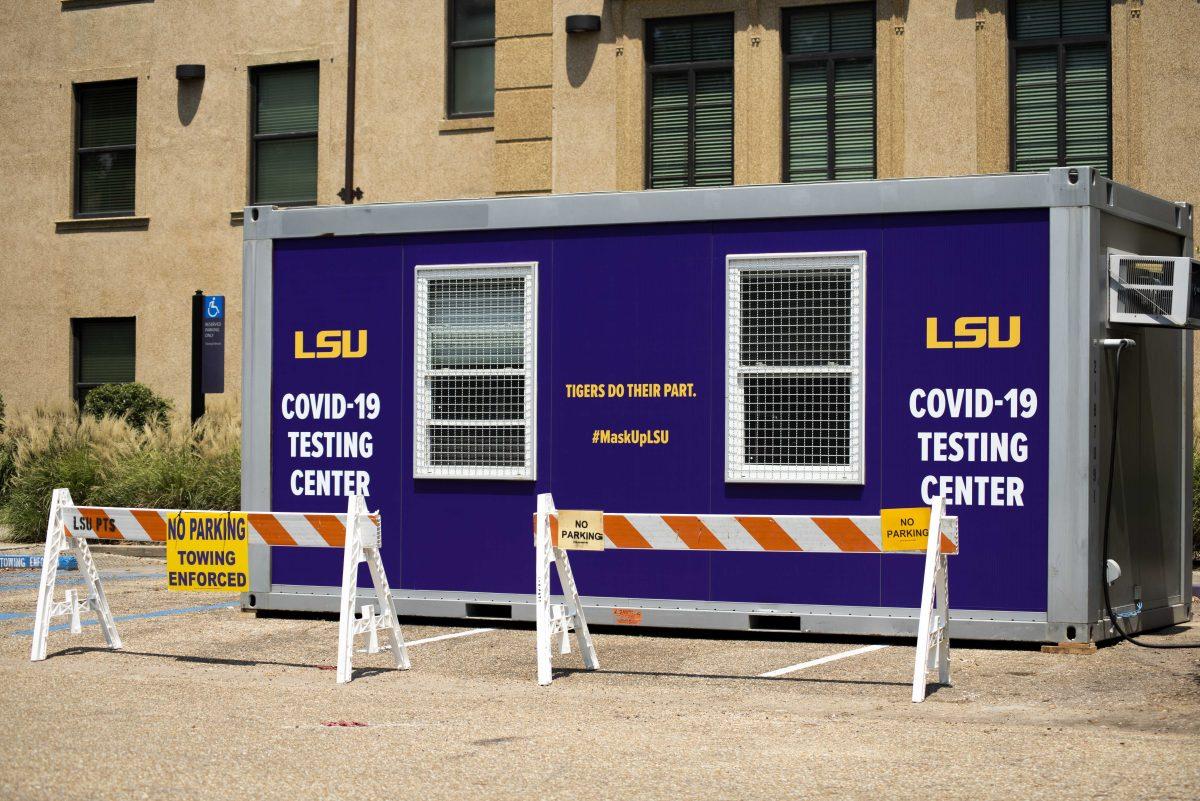On Oct. 14, Student Government President Stone Cox along with over 50 other student leaders signed a statement urging the University to require COVID-19 testing for students on campus, coinciding with reports that the administration had begun considering a mandatory testing program.
As the Reveille previously reported, the University already mandated testing at three residence halls in September following evidence that these areas had potentially become infected.
It’s time for the University to do it again — only this time as a regular testing program for all students living or learning on campus as well as faculty and staff working in person.
According to the COVID-19 dashboard, there have been 1,146 cases on campus this semester. The truth is, without a testing mandate, many more are likely still going undetected, as up to 80% of young people with the virus are asymptomatic.
A student who is unaware of their positive status could have the potential to spread the virus to dozens of people over the course of a day or a week. Catching even one of these cases would help prevent that. Masks and social distancing do a lot of work, but isolating these individuals before they have the chance to infect others is an ideal and potentially life-saving measure.
Many have criticized the University for its lack of transparency concerning the virus. So far the administration has responded to this by creating a more detailed COVID-19 dashboard, sending an email urging students to get tested at least once a month and promising football priority for those who get tested.
Incentivization is not the correct course of action to take during a global health crisis when the virus can be a matter of life and death for people in vulnerable groups.
While some may argue students and staff members can just stay at home if they wish, this is simply not true. People who cannot perform their jobs virtually still need a paycheck and many students cannot afford to delay their graduation date by skipping out on necessary in-person classes. Being on campus has hardly been a matter of choice for many members of our community.
Students, faculty and staff should know what dangers they’re being subjected to when they come on campus. Mandating testing would create a more accurate picture of the virus’ status on campus, giving people the freedom to make more educated choices concerning their own health and the risks they’re taking not only on their own behalf but on behalf of their families.
The Baton Rouge community deserves to know the ways in which the University may be jeopardizing the city’s overall health. University policies affect more than just the students on campus; it is important to remember the responsibility we have to the larger community.
Opponents of mandatory testing cite inconvenience and privacy concerns. Medical privacy is important, but COVID-19 isn’t a personal health issue as much as it is a matter of public concern. A person’s test status impacts everyone around them, including friends, family, professors and even total strangers.
Like wearing a mask and social distancing, getting tested is part of the duty we have to the people around us. It is all good and well for the University to ask students to get tested, but making it mandatory would simply be more effective and still entirely within reason.
One COVID-19 test a month — or ideally, every two weeks — would not be a huge burden. Frankly, even if it was, it would still be a good policy; small personal inconvenience doesn’t outweigh the health of the community.
Mandatory testing should have been the University’s policy from the moment doors opened this fall — but with a little less than 40 days left before Thanksgiving break, there is still ample time to evolve.
Claire Sullivan is an 18-year-old coastal environmental science freshman from Southbury, CT.







